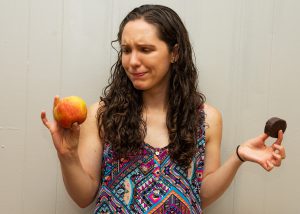If you’ve tried to find nutrition information in the midst of the Covid-19 pandemic, you probably got more than you bargained for. Recently, I searched “nutrition and COVID-19” and in less than one second, I got 590,000,000 hits. That’s a lot of information! With so much health and nutrition information available, especially connected with the ongoing pandemic, it can be TOUGH to separate fact from fiction. What makes it even tougher is that everyone seems to be passionately and totally convinced that their information is the right answer. How do you tell the hype from the truth?
The best way to protect yourself against questionable information and products is to become an informed consumer. That can be challenging as so many of us are becoming more used to getting our information from social media, websites, advertisements, friends and family. While information from those sources can be accurate, very often it is misleading. Use the following tips to evaluate nutrition information:
Know Your Experts:
Have you ever seen nutrition advice from a “nutritionist” or “diet counselor”? Beware, because those terms aren’t regulated, and almost anyone can use them to look like an expert. Registered dietitians (RD) or licensed dietitians (LD) hold specialized degrees and are good sources of solid nutritional information.
Media Sources:
The internet, books, newspapers, and magazines can be good sources of information, if you know where to look. If you’re surfing the net, select websites from credible web addresses like ones ending in .edu (universities or medical schools), .gov (government agencies), or sometimes .org (not-for-profit research and education). If you’re reading an article, always look for the author’s qualifications and membership in a professional nutrition organization. With all media, check the sources they used (If they don’t cite credible sources you can check, that’s a big red flag) and scan to the bottom to make sure they’re not trying to sell a product. If you can buy a “miracle” product, a solution, or a quick fix from them, watch out! Their information may be convincing, but it is likely biased or incomplete. At best, it calls for caution and some deeper research.
The flood of health and nutrition misinformation isn’t going away, but learning to be an informed consumer is a powerful step in learning to protect yourself from being duped.
- Nutrition Misinformation - August 8, 2021
- Belt or Booster? How to Keep Your Big Kid Safe - February 10, 2021
- Sugar vs Honey: What’s the Buzz? - August 17, 2020

